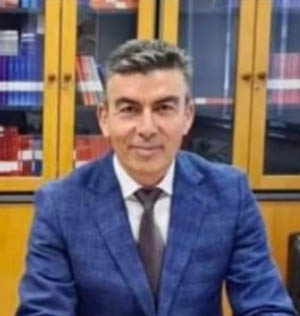The profession of Fintech Engineer or mechanical financial technology is at the heart of the modern economy and the rapidly evolving technologies. According to the “Future of Jobs 2025” exhibition of the World Economic Forum, it ranks second in the professions that will experience the greatest growth over the next five years.
This demonstrates the ever -increasing demand for professionals who combine financial knowledge with IT skills, data and algorithms.
The rise of Fintech and the need for automated, smart financial solutions enhance the importance of this profession. Banks, investment companies, insurance agencies, as well as startups in the field compete to attract specialized financial technology engineers.
The object of the mechanical financial technology
The financial technology engineer is the professional who utilizes cutting -edge technologies, such as artificial intelligence, blockchain, data analysis and algorithmic transactions, to improve financial services. It combines programming, mechanical learning and finance knowledge to develop solutions that make transactions faster, secure and efficient.
Fields
The profession of Financial Technology is applying in various areas:
- Bank Services & Payments: Development of secure and fast digital payments, open banking solutions and processes of processes.
- Investments & Capital Management: Design of algorithmic strategic transactions and development of smart investment consulting tools.
- Blockchain & cryptocurrencies: Creation of Decentralized Financial Applications (DEFI) and improve the security of transactions through smart contracts.
- Insurance Technology (InsurTech): AI risk analysis and improvement of insurance products with automated compensation procedures.
- Regtech Regulatory: Developing tools that ensure business compliance with international regulatory requirements.
Studies and Education in Greece
To pursue a career as a financial technology engineer, a strong basis is needed in both technological and financial knowledge. In Greece, there are several curricula that offer the necessary knowledge and skills:
- University of Piraeus – Informatics: Emphasis on computational finance and risk management.
- Economics University of Athens – Department of Administrative Science and Technology: It combines economic and technology lessons, offering specialization in Fintech.
- Aristotle University of Thessaloniki – Department of Informatics: It offers mechanical learning and data analysis courses, which are critical for the development of financial technology solutions.
- International University of Greece – MSc in Banking Program, Financial Technology (Fintech) and Risk Management Program: Specialized postgraduate program covering modern financial technology.
- University of the Aegean – Department of Economics and Management Engineering: It provides knowledge in finance, administration and technological applications, being a good career for Fintech.
- Democritus University of Thrace – Department of Production and Management Engineering: It combines administration, financially and engineering, offering skills that can be used in financial technology.
Financial technology is not just a new field – it is a revolution that shapes the future of transactions, investment and the economy. The role of the Fintech Engineer is not limited to creating innovative solutions; it is a key role in the transition to a more transparent, efficient and accessible financial system.
For those looking for a profession with dynamic evolution, challenges and world prospects, the choice is clear: Financial technology offers a field full of opportunities. However, it is important that students and students are looking for valid and prestigious sources of information such as the award -winning study of our scientific team, schools, studies & nationwide (Patakis editions) to discover such dynamic opportunities and specialties. With proper training, the necessary skills and a constant mood for learning, tomorrow’s professionals will be the ones who will shape the financial world of the future.
George Angouras, Vocational Guidance Advisor Employ Edu Education & Career Consultants www.employ.edu.gr

Theodoros Kalaitzidis
Mathematical
Group Chairman – After School
